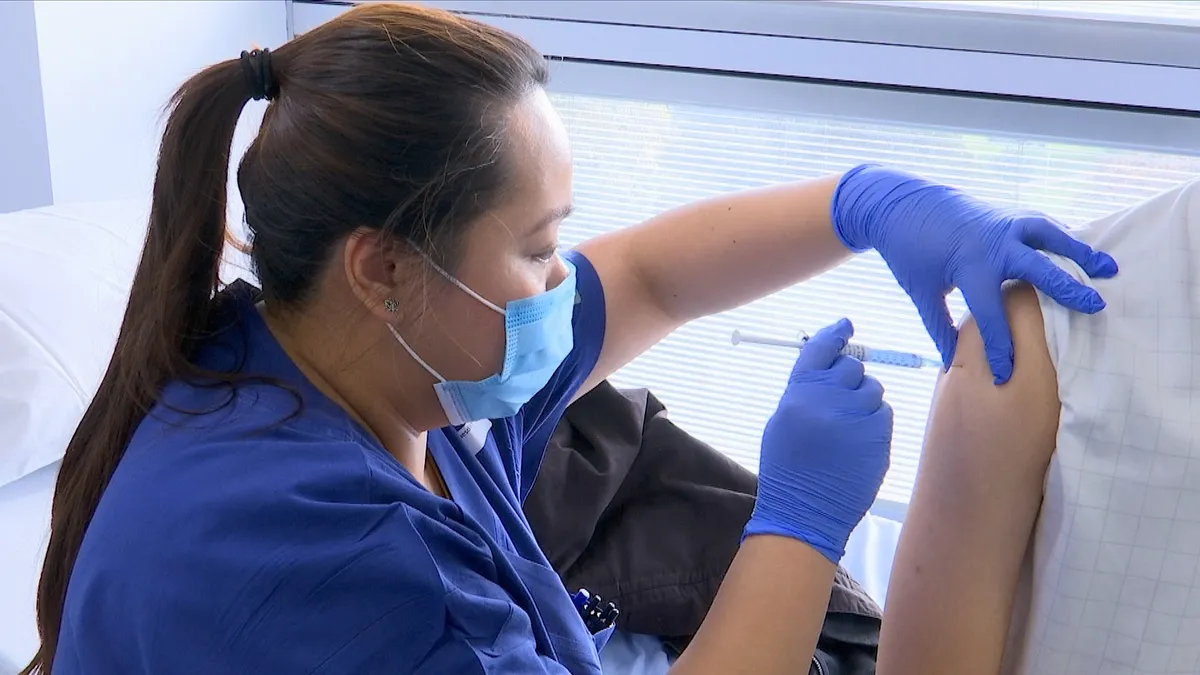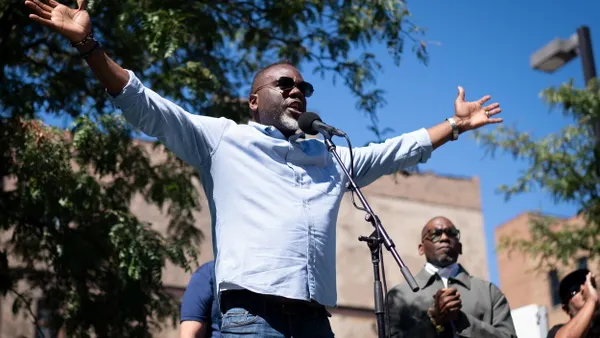Philadelphia is the only city among five U.S. jurisdictions to be selected for a COVID-19 vaccine distribution pilot by the Centers for Disease Control and Prevention (CDC). The effort, which will also take place in North Dakota, Florida, California and Minnesota, could start as early as Nov. 1.
The CDC is working with other federal members of Operation Warp Speed (OWS), a COVID-19 vaccination initiative under the U.S. Department of Health & Human Services, to quickly implement a national COVID-19 vaccine program with a goal of delivering 300 million vaccines by January 2021. The five pilot locations are intended to help OWS prepare for this national distribution, according to a CDC document, but they could face many obstacles, including a potential lack of funding and public trust.
The CDC’s selection of Philadelphia "came as a little bit of surprise, but [we’re] definitely happy to partake in the pilot," said city spokesperson Matthew Rankin. He suggested the CDC was "looking for a big city perspective," and selected Philadelphia due to its relationship with its state department of health, and track record for past vaccine distributions, including for the H1N1 flu virus.
The five jurisdictions will work with a "multiagency federal team" to prepare for the specific vaccination response in each location, the CDC wrote. Insights gained from the pilot will help inform future state and local vaccine efforts, including the creation of a planning tool to support vaccination distribution across all jurisdictions.
The first batch of vaccines is intended to be made available to high-risk workers in healthcare or other essential positions, in addition to staff and residents living in long-term care facilities. For Philadelphia, much of that will involve coordination with area hospitals and federally funded distribution sites, Rankin said.
The city could face challenges around funding, as health departments have been underfunded "for decades," CBS Philadelphia reports. The U.S. intends to spend over $10 billion to create COVID-19 vaccines, but none of that funding has been specifically set aside for distribution.
Spending for state public health departments has decreased 16% per capita since 2010, according to an Associated Press and KHN analysis. Thirty-eight thousand state and local public health positions have been eliminated since the recession, "leaving a skeletal workforce for what was once viewed as one of the world’s top public health systems," KHN writes.
Public trust could also be a major barrier to vaccine distribution. A June survey from ICF and MFour Mobile Research showed that many U.S. residents are losing trust in government, with 49% of individuals saying they have little or no confidence in the information they receive from the public government. And over one-third of people said they would not be likely to receive a Food and Drug Administration-approved vaccine once it’s available.
Although it largely remains to be seen how Philadelphia and the other locations will address these challenges, the city is pushing ahead with its preparation. The CDC recommends that state and local public health programs prioritize planning efforts with tactics like creating a planning team, modifying a strategy that includes "timelines, deliverables and metrics" and identifying high-risk communities where extra vaccine outreach may be required.
Philadelphia intends to submit its plan for the pilot program by Oct. 1, according to Rankin.













